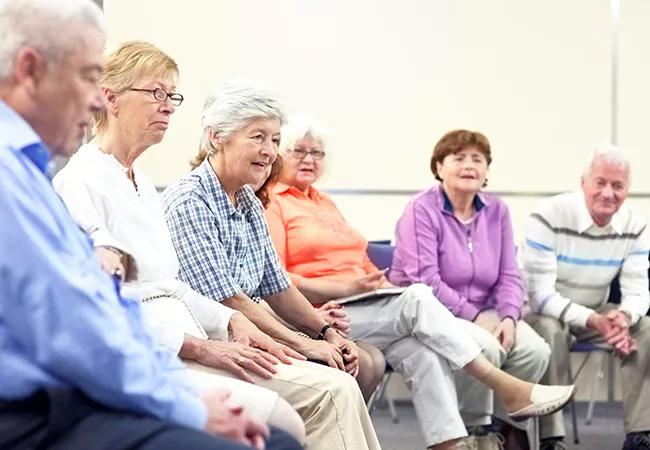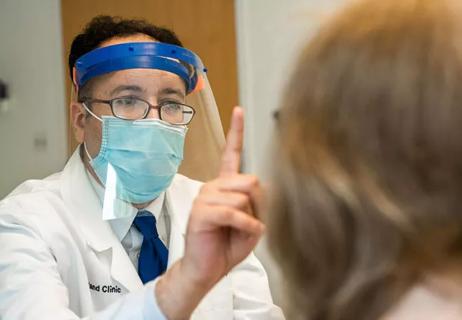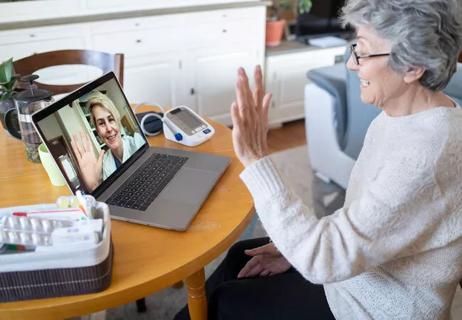Shared medical appointments offer added resources

Dementia is one of the leading causes of disability and poor health in this country according to the Alzheimer’s Association. In its effort to stem this issue, Cleveland Clinic’s Center for Geriatric Medicine has started to offer monthly shared medical appointments (SMAs) for patients in the early stages of dementia. These appointments include both the patient and a primary caregiver.
Cleveland Clinic is a non-profit academic medical center. Advertising on our site helps support our mission. We do not endorse non-Cleveland Clinic products or services. Policy
These new Geriatric Dementia SMAs are being conducted in collaboration with the Alzheimer’s Association and are offered as follow-up care for newly diagnosed patients and those in the early stages of the disease.
“SMAs offer an innovative, interactive approach that combines the traditional one-on-one provider visit with a chance to participate in a shared appointment led by a healthcare professional,” explains Nurse practioner Anne Vanderbilt, MSN, RN, CNS, ANP-BC, who conducts the appointments on Cleveland Clinic’s main campus along with a specialist from the Cleveland Alzheimer’s Association.
These shared appointments provide education on the disease process and treatment options. Each session allows for six to eight patients along with their primary care partners and provides an opportunity to discuss the disease and its related problems, including medical and lifestyle interventions for memory loss, managing functional decline and care partner stress.
These SMAs signify a unique relationship with the Alzheimer’s Association by providing primary care partners with direct access to the experts in the field of Alzheimer’s disease. “Having the Alzheimer’s Association involved provides an important resource for caregivers who are helping their loved ones and may feel burned out at times,” Vanderbilt says. “There is evidence that more resources makes a big difference for care partners.”
Insurance covers SMAs like typical office visits, and there is no extra charge for the extended appointment time. All participants sign a confidentiality statement agreeing to safeguard medical information shared during the appointment to ensure that it is a safe and secure environment.
SMAs are actual office visits with expert providers. Patients have the same exam, lab review and time for questions that they would have during a one-on-one office visit.
“Anything you would normally do in an individual office visit can be done in the SMA,” Vanderbilt explains. “If needed, a private exam can be conducted in a nearby private exam room. And when patients leave they have the necessary prescriptions that the healthcare professional deems appropriate.”
These appointments provide more time for questions, the opportunity to learn from the questions and comments of others, less wait time to get in for an appointment, little to no time in the waiting room, and a relaxed and supportive environment.
SMAs are designed for patients to enjoy more time and get more information from healthcare experts. More than 85 percent of patients who try an SMA want to schedule another. But, Vanderbilt says, if a patient or their care partner decide that SMAs aren’t right for them, they can return to scheduling one-on-one appointments with their care provider.

Center for Geriatric Medicine leads inpatient care of fragility fractures

More clinical research should specifically study the very old

Delayed screenings indicate need for more virtual testing tools

Change in PCV13 recommendations

Metrics support proactive cognitive care, demand more research

Case study exhibits difference in diagnosis and treatment

A review of the evidence

Cleveland Clinic geriatrician weighs in on new AA recommendations